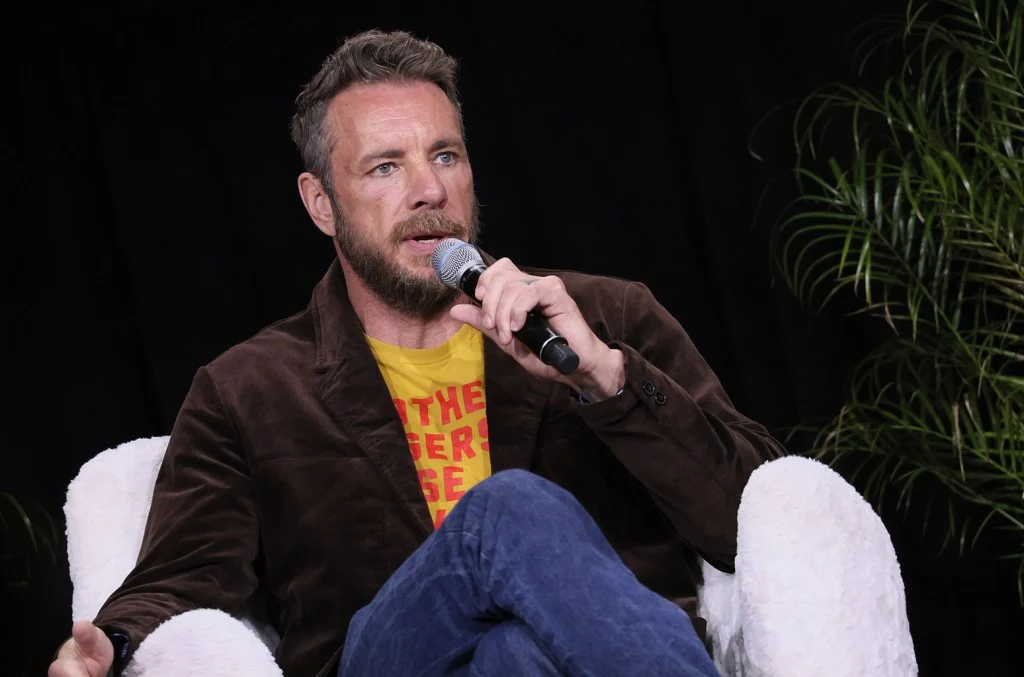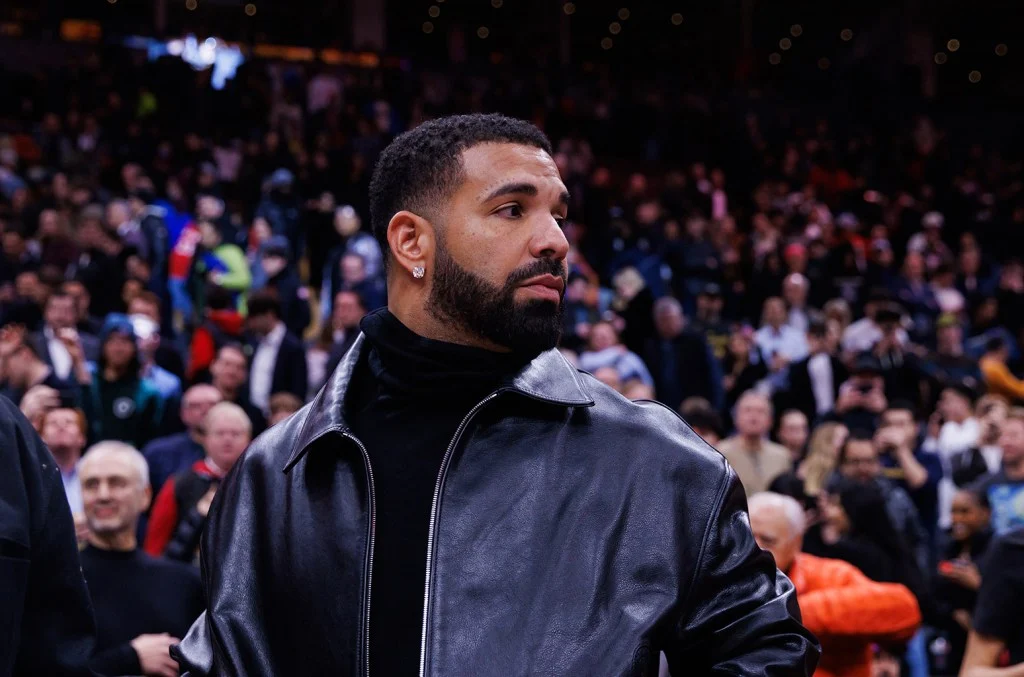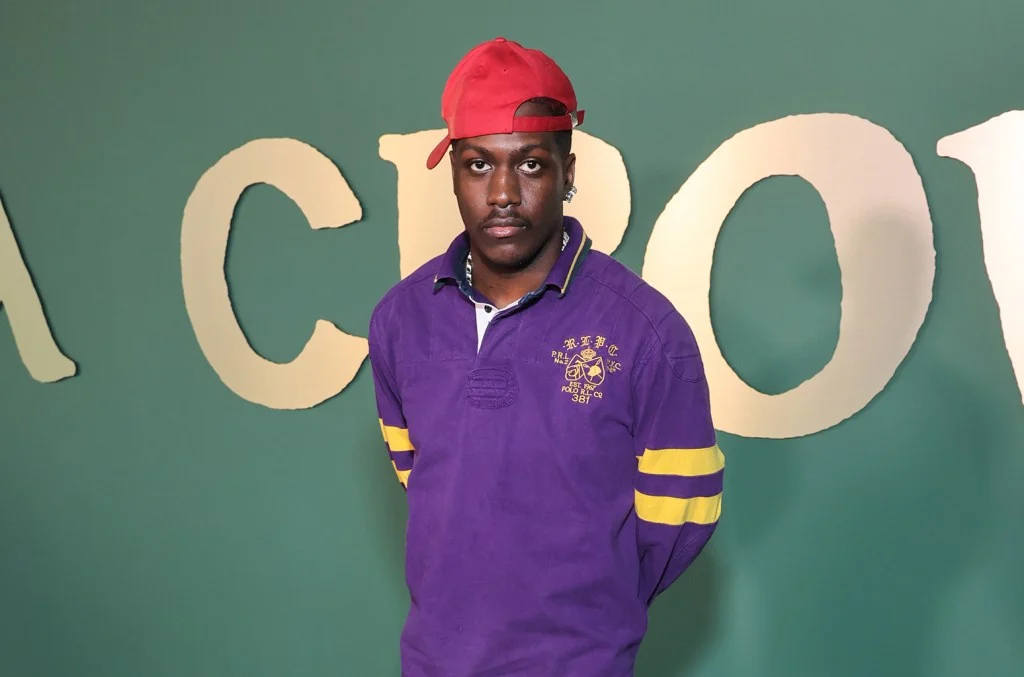Podcasts
Page: 6

Before we celebrate our Billboard Women in Music honorees this Saturday night — including 2025 Woman of the Year Doechii — the Billboard charts team put together the Top 100 Women Artists of the 21st Century chart (encompassing women soloists, all-women groups and groups with prominent women’s vocals). On the new Billboard Pop Shop Podcast, […]
As 1995 began, Madonna was still an A-plus-list superstar and one of the most famous people in the world — but she was no longer at the absolute center of pop music. A half decade of increasingly controversial (though often brilliant) albums, singles, videos, movies and appearances had left the public divided and unsure about the Queen of Pop’s standing, while the dance-pop she’d conquered the world with in the ’80s had fallen out of fashion in a top 40 landscape dominated by alt-rock, hip-hop and R&B. But ’95 saw her reclaim her radio supremacy, while still taking huge artistic chances and pivoting to a more mature cross-platform star persona — though hardly all at the same time.
Explore
Explore
See latest videos, charts and news
See latest videos, charts and news
In this week’s Vintage Pop Stardom episode of the Greatest Pop Stars podcast, host Andrew Unterberger is joined by Keith Caulfield, Billboard‘s Managing Director of Charts & Data Operations (and co-host of the Billboard Pop Shop Podcast, and longtime M disciple) to express ourselves and not repress ourselves about Madonna’s incredibly fascinating 1995. We pick up mid-Bedtime Stories rollout with Madonna, as she improbably scores the biggest Billboard Hot 100 hit of her entire storied career, and we make it through her LP’s experimental final two singles (and their rather notable music videos), through getting cast in the film role of a lifetime, through the ’95 Video Music Awards, and finally end with her Something to Remember era, while she preps the world for a year of Oscar campaigning.
Trending on Billboard
In the meantime, we brace the most important questions about La M as she reached the midpoint of her 1990s: Which super-cool-and-acclaimed European act made for better Madonna collaborators, Björk or Massive Attack? Why does nobody remember that “Take a Bow” was her longest-running No. 1? Should “Human Nature” have been a bigger hit? Was Evita worth shutting down her mid-’90s touring plans for? Did she really deserve a Razzie for her Four Rooms appearance? And of course: How did she fare in her infamous interview showdown with Courtney Love following the ’95 VMAs?
Check it out above — along with a YouTube playlist of some of the most important moments from Madonna’s 1995, all of which are discussed in the podcast — and subscribe to the Greatest Pop Stars podcast on Apple Music or Spotify (or wherever you get your podcasts) for weekly discussions every Thursday about all things related to pop stardom!
And if you have the time and money to spare, please consider donating to any of these causes in the fight for trans rights. (Madonna would want you to!)
Transgender Law Center
Trans Lifeline
Gender-Affirming Care Fundraising on GoFundMe
Also, please consider subscribing to the trans legislation journalism of Erin Reed, and giving your local congresspeople a call in support of trans rights, with contact information you can find on 5Calls.org.
HipHopWired Featured Video
Source: Getty / General
Diddy’s sex trafficking trial is a little more than two months away from getting underway and already ABC News is looking to capitalize off the attention it will no doubt get with a new podcast centered around the allegations lobbed at the Bad Boy Records founder.
According to Variety, ABC News will be launching Bad Rap: The Case Against Diddy on May 25, the day that Diddy’s trial is set to begin and will be hosted by legal contributor and attorney Brian Buckmire. Bad Rap will be the first true-crime series supported by 20/20 and ABC’s news gathering squad and “will trace how whispers of abuse came to light and led to the stunning federal charges and civil lawsuits that Diddy now faces.”
The first six episodes of Bad Rap are set to cover the background on the allegations that have been thrown at Diddy, which will be followed by “twice-weekly episodes during Combs’ trial with ‘real-time updates’.”
Per Variety:
“Bad Rap: The Case Against Diddy” is one of the anchor shows on ABC Audio’s new podcast slate in collaboration with “20/20,” which it says will provide “always-on true crime content.” The new podcasts will join ABC News’ flagship daily news podcast “Start Here” and the popular “20/20” podcast. Also available today, ABC Audio is launching a new “20/20 True Crime” channel on Apple Podcasts.
Launching Monday (March 17) is “20/20: The After Show,” a weekly show hosted by “20/20” co-anchor Deborah Roberts. It’s a companion podcast to the TV newsmagazine, which airs Fridays on ABC. In “20/20: The After Show,” listeners can hear the story behind each week’s episode and access exclusive bonus material.
We low-key wish Barbra Walters was hosting this podcast if for no other reason than for nostalgia sake. Just sayin’.
Will you be listening to ABC’s Bad Rap: The Case Against Diddy podcast when it premiers on May 25? Will you be checking in on the trial? Let us know in the comments section below.
Just as Chappell Roan has cemented herself as one of pop’s most promising new stars, winning best new artist at last month’s 2025 Grammys amid a crowded field, she’s taken a left turn toward Nashville for her new country single “The Giver.” On the new Pop Shop Podcast (listen below), Katie & Keith are chatting […]

Take it from Dax Shepard: Dancing to Sabrina Carpenter‘s music with your kids is super fun. The PG-13 conversations that her songs might inspire afterward? Not so much.
On the latest episode of his Armchair Expert podcast, the actor — who shares 13-year-old Lincoln and 10-year-old Delta with wife Kristen Bell — started out by saying that despite being “so late to the party,” he’s now “an enormous Sabrina Carpenter fan.”
“It started with ‘Bed Chem,’” he shared, referencing one of the steamier tracks on the Girl Meets World alum’s Billboard 200-topping album Short n’ Sweet. “I was driving with Delta to school today, and we listen to it every morning … If a song, it hits, you can’t resist dancing with your shoulders. We were really getting our shoulders active this morning, it was a blast.
Trending on Billboard
“It’s really fun now that I love her favorite artist,” he added. “It’s fun for her. ‘Cause now I’m on the Sabrina train.”
That said, Shepard isn’t quite as big a fan of one of the other tracks on Carpenter’s LP: “Juno,” the aphrodisiacal chorus of which is inspired by the 2007 film of the same name about a high schooler, played by Elliot Page, who gets pregnant. “I don’t wanna tell [Delta] it wasn’t my favorite, ’cause it’s her favorite — but I’m not gonna lie to her,” he said before explaining the awkward parenting moment the racy song’s lyrics inspired.
“She goes, ‘But do you know what Juno is?’ and I go, ‘No…,’” Shepard recalled. “And she’s like, ‘Well, it’s a movie,’ and I go, ‘The movie Juno? Yes, I know.’ She goes, ‘Yeah … It’s a story about a girl who gets pregnant.’”
“I go, ‘That’s a little nasty,’” he continued. “And she goes, ‘What’s nasty about wanting to have a baby with somebody?’ I go, ‘Well, it’s a teenager. She’s in high school.’”
“The way she phrased it was like, ‘Wait, what’s nasty about wanting to have a baby with someone you love?’” Shepard added. “And I was like, ‘Oh no, there’s nothing nasty about that, I’m just saying, ‘I wanna get pregnant in high school’ is kind of a nasty, fun lyric. It’s a positive ‘nasty,’ I’m saying.”
Full of NSFW lyrics and double entendres, “Juno” is one of the biggest fan favorites on Short n’ Sweet. That’s thanks in part to the fact that each night on Carpenter’s ongoing tour in support of the album, she strikes a different pose on stage to coincide with the suggestive lyric, “Wanna try out some freaky positions?/ Have you ever tried this one?”
At one of her recent shows in Paris, for instance, she paid tribute to the city by contorting her body into the shape of the Eiffel Tower with the help of two male backup dancers.
Listen to Shepard recount his and Delta’s conversation about Carpenter on Armchair Expert below.
David Gray made sure no two shows on his recent U.S. tour supporting his 2024 album, Dear Life, were the same. Not only is the choice of songs different one night to the next, there are moments of spontaneity and humanity that give each performance a different character.
Explore
Explore
See latest videos, charts and news
See latest videos, charts and news
“Even within changing the set, I’m adding things in that I haven’t planned for,” the British singer-songwriter tells Billboard’s Behind the Setlist podcast. “And why? Because the puppet is turning back into a real boy. That is the process that’s going on. I want to be sort of emotionally present on stage, not just playing the set. I don’t want us to go into battle mode — here we are, information, walk on, do the gig, come off, champagne. I want it to be more than that.”
In Detroit, for example, somebody shouted a request for his first single, “Birds Without Wings,” from his 1993 album, A Century Ends. It wasn’t on the setlist, but Gray obliged. At another concert, a fan shouted a request for “The Song of Wandering Aengus,” a track based on a poem by William Butler Yeats that Gray has performed live but never recorded. “Wow, that is obscure,” he recalled thinking. “I’m impressed.” Although Gray had never performed the song on the piano, he played the beginning and eventually made it through the song. The unexpected diversion was a memorable success. “My favorite moment of the whole night,” he says. “It’ll be one of my favorite moments from the tour.”
Trending on Billboard
Gray is best known for his breakthrough album White Ladder from 1998, one of the most successful albums in the U.K. and Ireland of the 2000s. Songs from White Ladder were spread throughout the concerts, but Gray dipped into his catalog of 13 studio albums and included numerous songs from Dear Life. “These [new] songs are very direct and instant, I feel, and I felt that they could stand next to shoulder to shoulder with the big songs from my catalog without being crushed,” he says.
Incorporating surprises, telling stories about his music and taking chances helps connect Gray to the audience and heighten the concert-going experience. “I want to be emotionally direct,” he continues. “I want to be emotionally present. I don’t want to be pornographic. It’s not like, ‘Dave’s going to show us everything. This is what’s going on inside his head.’ It’s a moment of sharing only in a way that would enrich the experience of listening to the music and explain why we’re there making the music. We’re not here to just make a few dollars. I’m here for a different reason.”
Check out the entire conversation in which Gray walked Behind the Setlist through his entire 23-song set, in order, at the Orpheum Theatre in Los Angeles on Feb. 14. Listen using the embedded Spotify player below, or go to Spotify, Apple Podcasts, iHeart, Amazon Music, Podbean or Everand.
The 2025 iHeartPodcast Awards Live at took over SXSW in Austin, Texas, this week, celebrating the biggest names in the audio storytelling space. The event, which took place at ACL Live at The Moody Theater, was hosted by Jack O’Brien and Miles Gray of The Daily Zeitgeist, and a number of stars took the stage […]
Drake wants to go podding. The Toronto rapper took to his moodboard/finsta account plottttwistttttt and posted a couple of clips from a relatively unknown podcast called TanksGodPod hosted by two young women: Luda Podgorna and Elena De Napoli. The clips show the pair playing a game of “Would You Rather” with one of the captions […]
Lil Yachty didn’t hold back when asked about his thoughts on the Black Lives Matter organization. The Atlanta rapper slammed BLM during an appearance on Quenlin Blackwell’s Feeding Starving Celebrities cooking series earlier this week. “BLM is a scam,” Yachty replied when asked about his philanthropic endeavors in recent years. “BLM was literally a scam.” Blackwell […]
It’s been a long lead-up to Lady Gaga‘s new album Mayhem. Aside from the collaborative Love for Sale LP with Tony Bennett and the Joker: Folie a Deux-accompanying Harlequin set — both of which mostly consisted of covers of pop standards — Mayhem is Gaga’s first official album in nearly half a decade, since the […]

 State Champ Radio
State Champ Radio 






